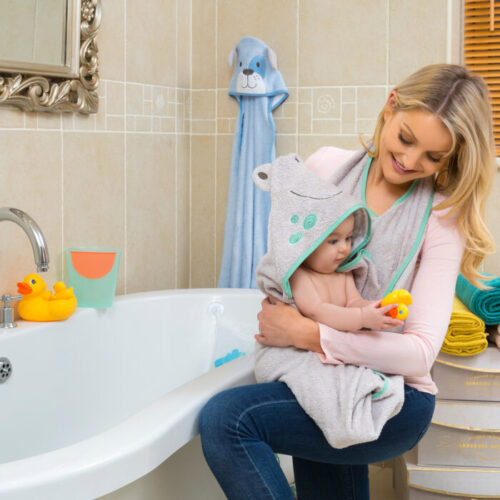The recipe for a successful school experience

With more pressure than ever on children to do well in school, we look at what a positive school experience consists of and how to set your little one up for success.
The general perception of what it means to have a ‘successful’ school experience is changing. Nowadays, we understand that school is about much more than grades. While it’s important for our children to apply themselves to the best of their abilities (and hopefully get good grades), school is also a place for little ones to grow and develop in all sorts of different ways. Due to this, there are so many things that you can do at home that will have a positive impact on your child’s school experience, and therefore their success. Here, we will take a look at what you can do to set your little one on the right path.
Set goals
School is often seen as a series of exams over a period of years that will determine the future of your child. There is so much more to it than that. Viewing school as an opportunity for your child to develop consistently each year, in a variety of different ways, is more accurate. Yes, exams are important in terms of tracking progress and marking milestones but they’re not the only way to measure the success of your child’s school experience.
Goal-setting is a brilliant tool that can be used to help your child excel in school. These goals should be achievable and realistic. Every child is different and so there is not a one-size-fits-all solution. You know your child best and therefore you are in the best position to help them draw up realistic goals. The goals should be less “I’m going to get an A in Science in my next exam” and more “I’m going to ask my teacher for help with any Science homework that I can’t complete.” The former is slightly too vague and not solely in your little one’s control. The latter is a small, regular action that your child can take to stay on top of their Science homework, understand the key concepts and then hopefully carry this understanding into the exam.
Cover all areas
The goals you set out together should cover a range of different areas of your child’s schooling. Making friends and maintaining friendships is a core aspect of the years your child will spend in school. With this in mind, you could both consider a goal along the lines of “I will try to make one new friend this term”, or “I’ll commit to meeting up with my friends twice a week outside of school time.” With manageable social goals, your child will be able to develop their relationships in a steady manner.
Lead the way
Children often look to their parents for an example of how to do something they’re unfamiliar with. Goal-setting might be a brand new concept for your child and so a little bit of guidance will go a long way. Setting a goal of your own and being transparent about it with your family can show your child that it’s a normal thing to do, and that it’s natural to be a little bit scared going into it. If you can create a goal for yourself and achieve it in front of your child, they’ll soon understand the value of this process.
Enjoy the journey
As mentioned previously, your child’s journey through school is a process. Full of highs and lows, it will bring plenty of challenges to your household. What helps is trying to enjoy this.
Keep looking forward
When things aren’t going so smoothly, focus on the fact that you and your little one are going to overcome this obstacle and be all the better for it. In the good times, don’t get too carried away. Note what aspects of your parenting and your child’s efforts have helped lead to this success and how you could possibly repeat them in the future.
If your child is prone to overwhelm or gets stuck in a negativity spiral when struggling to overcome an issue, then it can be very helpful to remind them that this process will take time. Remind them that this is a long-term game that will throw up a few problems, and that you will support them through it all.
Let them lead
While it can be frustrating when children don’t do things exactly as we’d like them to be done, we must remember that they have very distinct personalities of their own. Therefore, it’s massively beneficial for all parties to invite your child to give their opinion at all times. This is their education, after all! You might be surprised at the depth of insight that they will have of themselves and the situation they’re in.
For example, just because you think it would be better for your child to do their homework as soon as they get in from school, it doesn’t mean that that’s true for them. Lots of kids find it necessary to blow off some steam after a long day behind a desk. Some exercise, socialising or light entertainment allows them to reset before tackling the workload. The lesson here is to keep in mind the end goal – getting the homework done and not excruciating over the details. If your child has a preference, and it can fit in with the rest of the household, then it’s usually well worth incorporating.
It all begins at home
While children spend the majority of their time at school, the chances of their success there often stem from their experience at home. It’s at home that the foundations for this success are set down and it’s small changes here that can make all the difference in the end.
Communication
In order to develop and sustain a method that will help your child to maximise their potential at school, communication is absolutely essential. There should be honest, direct and gentle communication between children and parents that ensures each party knows how everything is going. Building these lines of communication will mean that your child will feel they can come to you with any problem they’re facing.
The journey your child is setting out on should be viewed as a team effort. Each member of the family has a part to play in this project. In homes where there are multiple children, this is a fine balance to ensure that no one child is getting preferential treatment. Kids of different ages or stages may need to be prioritised for a short while from time to time and this should be communicated clearly to everyone involved. No child should feel second best or as if their school journey is any less important.
Sleep
Without sufficient sleep even the best laid plans will fall to pieces. Sleep is one of the most crucial components of your child’s health and, therefore, massively affects how they learn and develop. Lots of parents underestimate how much sleep their children need. Most kids need anywhere from nine to eleven hours of sleep each night, with teenagers requiring eight to ten hours. These valuable hours of sleep shouldn’t be interrupted or cut short – they are vital to your little one’s success. Do what you can at home to help your child wind down before bedtime so that they can get the best night’s sleep possible.
Final thoughts
One last thing to remember is that there is no need to be daunted by this process. Watching your child set off to school and move through the years is an unbelievably exciting part of being a parent. Put ‘perfect’ out of your mind and instead simply commit to doing your best. Inevitably, there will be ups and downs. With the love for your child at the forefront of your mind as you take on this challenge together, and a strong feedback loop of communication between you both, your little one will be destined for success!
Image Credit: ShutterStock











Comments